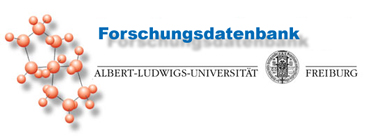| [Zurück zum Forschungsbericht] |
 |

The Variable Response Model: Theory, Implementation, and Application
Projektbeschreibung:The assessment of mental abilities is ubiquitous in everyday life and includes job interviews, driving exams, and university admission tests, to name just a few. Mental abilities can be estimated with the help of statistical models and the observable behavior in a test. Typically, these models are tailored to specific response formats such as multiple choice, true-false, or continuous responses. Conversely, the present project introduces the Variable Response model which flexibly accounts for various response formats within the same test. In contrast to many similar models, the Variable-Response model further accounts for situations where the correct responses to the test questions are unknown. This applies to witness testimony, for example. When several witnesses of a crime are interviewed, the correct responses represent the true details of the crime. The Variable Response model provides estimates of these details while accounting for inter-individual differences in the witnesses’ abilities to report about the crime. In the present research project, I first focus on theory and aim to adapt the Variable Response model to situations where multiple mental abilities contribute to the same test scores. The second goal of the project is to implement the model in software that allows practitioners to apply the model with as little training or prior knowledge as possible. Finally, the project applies the Variable Response model to witness testimony. Specifically, I aim to improve the quality of face composites by accounting for inter-individual differences in the witnesses´ ability to describe the perpetrator. Ultimately, the project may help to establish the Variable Response model as a standard forensic tool when several witnesses of the same crime are available. The Variable Response model could also aid educational testing where the mixing of response formats provides improved flexibility to practitioners. I further expect the present project to be of interest in Anthropology where similar but arguably less powerful methods have been used extensively.Projektlaufzeit:
Projektbeginn: 01.04.2018Projektleitung:
Projektende: 31.03.2021
Aßfalg A
Albert-Ludwigs-Universität Freiburg
Institut für Psychologie
Abteilung für Sozialpsychologie und Methodenlehre
Engelbergerstraße 41
79106 Freiburg i. Br.
Telefon: +49 (0)761 - 203 2470
Fax: +49 (0)761 - 203 2417
Email: sekr.sozpsy-method@psychologie.uni-freiburg.de
http://www.psychologie.uni-freiburg.de/abteilungen/Sozialpsychologie.Methodenlehre
Mitarbeiter:
- Aßfalg A
- DFG AS 427/3-1, DFG
Aktueller Forschungsbericht